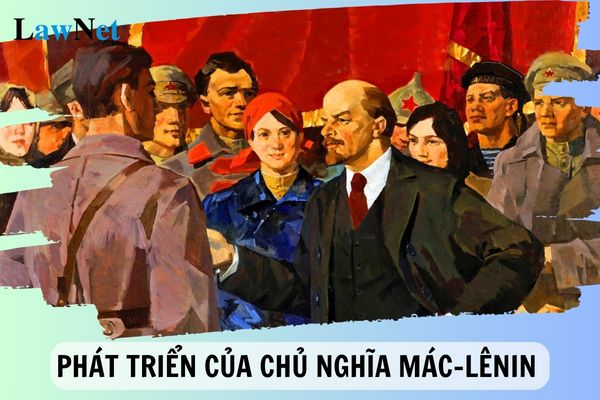What are major stages of the formation and development of Marxism-Leninism? What are purposes of studying the course 'Fundamental Principles of Marxism-Leninism' in Vietnam?
What are major stages of the formation and development of Marxism-Leninism?
Marxism-Leninism is a system of scientific theories and perspectives founded by C. Marx and F. Engels, later further developed by Vladimir Ilyich Lenin. It serves as the ideological foundation for many revolutionary and political movements worldwide.
The emergence and development of Marxism-Leninism can be divided into two major phases: the formation and development of Marxism by C. Marx and F. Engels; and the preservation and evolution of Marxism into Marxism-Leninism by V.I. Lenin.
The two phases of the emergence and development of Marxism-Leninism are:
1. Phase of Formation and Development of Marxism (1848 - 1895):
- C. Marx and F. Engels developed the foundational theories of Marxism, including philosophy, political economy, and scientific socialism.
- The work "The Manifesto of the Communist Party" was published in 1848, marking the birth of Marxism.
2. Phase of Preservation and Development of Marxism into Marxism-Leninism (1895 - 1924):
- V.I. Lenin preserved and developed the theories of Marx and Engels within the new context of imperialism.
- In 1917, Lenin led the October Revolution in Russia and established the Soviet state, further developing theories on state and revolution.
The emergence and development of Marxism-Leninism hold significant historical and theoretical importance in revolutionary ideology, specifically:
- Providing a theoretical foundation for the labor movement: Marxism-Leninism equips the working class with a scientific and revolutionary theoretical system, aiding them in recognizing their historical role and mission in the struggle against oppression and exploitation.
- Guiding socialist revolutions: The theories of C. Marx, F. Engels, and Lenin have served as a compass for many socialist revolutions worldwide, particularly the October Revolution in Russia in 1917, heralding a new era for the global revolutionary movement.
- Contributing to the construction of socialist society: Marxism-Leninism provides principles and methodologies to build a society free from oppression and exploitation, aiming for the ultimate goal of communism.
- Exerting profound influence on global thought and politics: Marxism-Leninism not only influences revolutionary movements but also profoundly impacts the ideology and politics of numerous nations, encouraging national liberation movements and promoting a more just society.
Note: Content for reference purposes only!

What are major stages of the formation and development of Marxism-Leninism? What are purposes of studying the course 'Fundamental Principles of Marxism-Leninism' in Vietnam? (Image from the Internet)
What are purposes of studying the course 'Fundamental Principles of Marxism-Leninism' in noin-major systems in Vietnam?
Pursuant to Subsection 2, Section 2 of the Fundamental Principles of Marxism-Leninism course program issued with Decision 52/2008/QD-BGDDT, the aims of studying and researching this course include:
- To construct a worldview and scientific methodology and to creatively apply these principles in perception and practical activities.
- To understand the most important theoretical basis of Ho Chi Minh's thought and the revolutionary strategy of the Communist Party of Vietnam.
- To help students comprehend the ideological foundation of the Communist Party.
- To build confidence and ideals for students.
What are requirements for the methodology of studying and researching the "Fundamental Principles of Marxism-Leninism" course in Vietnam?
According to the regulations in Subsection 2, Section 2 of the course program on the Fundamental Principles of Marxism-Leninism issued with Decision 52/2008/QD-BGDDT, the core methodological requirements for studying and researching this course include:
- To continuously connect the fundamental perspectives of Marxism-Leninism with the practical realities of the country and age.
- To correctly understand its essence and spirit, avoiding scholasticism and dogmatism during the learning, research, and application of these principles in practice.
- To study each principle of Marxism-Leninism in relation to other principles, each component in relation to other components to see the rich and consistent unity of Marxism-Leninism, as well as to recognize these principles' place in the historical development of human thought.

